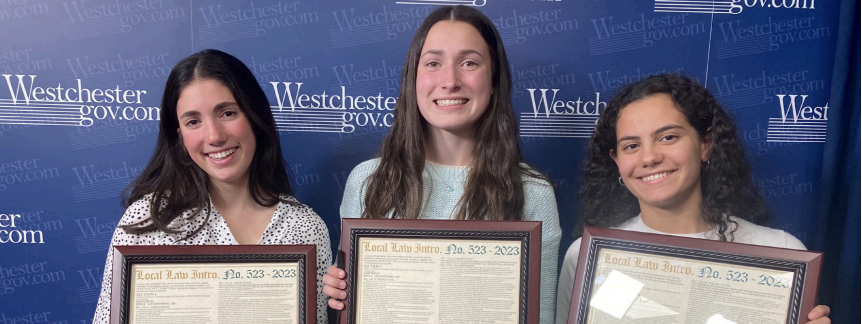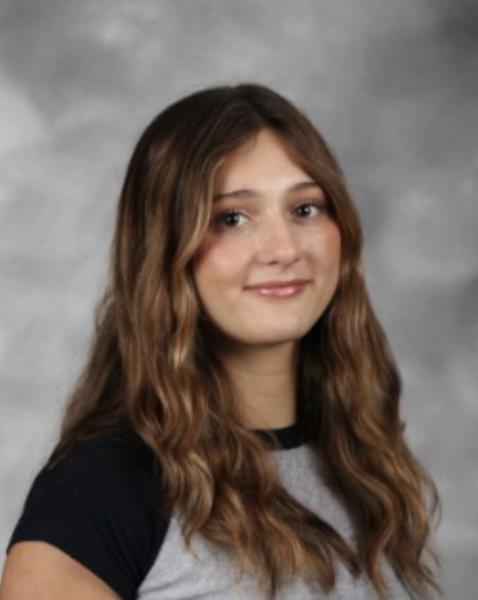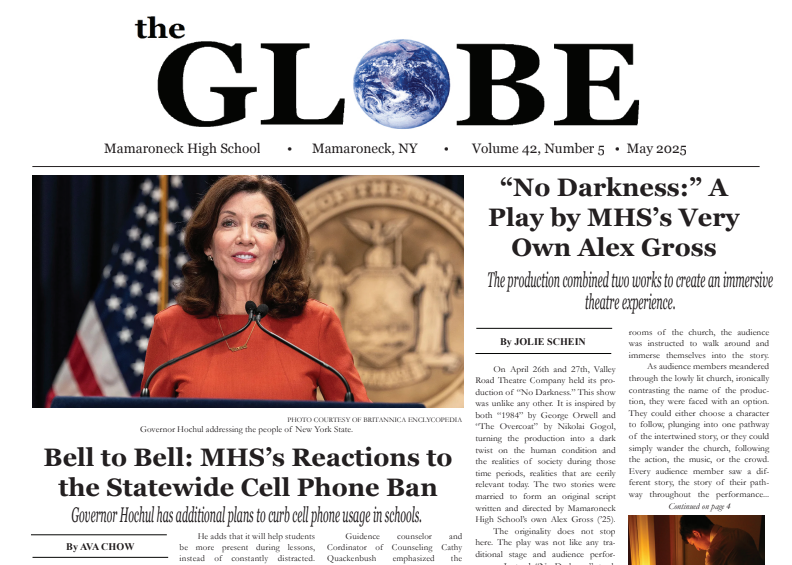OCRA Prioritizes Curiosity, Compassion, and Commitment For The Future of The Program
Seniors Marion Karp, Katie Loga, and Larissa Bertini display framed copies of the new County foodware law they helped shape.
June 29, 2023
One of Mamaroneck High School’s most popular programs, Original Civic Research and Action, or OCRA, encourages students to be truly dedicated and passionate.
The four-year program, beginning freshman year of high school, is focused on engaging students in hands-on research and civic action. It attempts to facilitate a student-centered, group-based approach that assists students in tackling issues such as sustainability, political participation and representation, youth access to opportunity, and local economic vitality.
Many groups have succeeded with this model, securing grant money for electric charging stations in Larchmont, creating an app for Mamaroneck’s Sustainability Collaborative, helping fight against wage theft in the local community, instituting a dual-stream recycling system at MHS, and advocating for right to counsel for people facing eviction.
OCRA has always been, and will always be, open to all students who want to join, representing a haven from the more highly structured and individualistic school environment. Unlike many other classes, where teachers plan out daily tasks and lead you to particular answers, OCRA encourages students working in groups to creatively solve real-world problems. Students also develop significant relationships with community mentors, developing soft skills such as speaking with professionals and presenting in public forums. While this opportunity is open to all students, being an earnest OCRA member requires tremendous effort, especially considering students’ progress and success in the class does not rely on traditional lessons. “Unlike other classes, like AP Gov, when you fail a task or exam, it typically only affects one student. But in OCRA, it always affects the entire group’s success,” says Mr. Liberti.
As an OCRA sophomore explains, “OCRA runs on self-initiative, group collaboration, curiosity, and dedication.’’ She continues, “If students are not passionate about their project, they will not feel motivated to put in the necessary time and effort to see success.” Ultimately, groups determine their project’s timeline, including tasks, deliverables and major goals, which makes students project managers of multi-year initiatives. To support growth and success, Mr. Liberti is implementing a year-end evaluation focused on particular skills and dispositions. These evaluations help students honestly assess their progress within their group, increasing cohesion and productivity.
“OCRA is an elective and it’s important to remember, students choose to take it. Solving an issue that you’re passionate about takes commitment and tenacity,” Mr. Liberti says.
The OCRA sophomore continues, “the people who don’t deeply care about their issue are wasting their group’s time.
OCRA projects are a unique reflection of a student’s specific civic concerns, so, every member’s passion and commitment is crucial to success.
“If you are just going through the motions, you’re not going to have the curiosity and passion needed to help your group succeed,” explains Mr. Liberti. “Ultimately,” he remarks, “the desire to improve your community for all has to be the motivating force.” If you want to be a member of a program where passion, hard work, independence, innovation, and civic leadership are developed and required, OCRA is the program for you.







